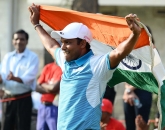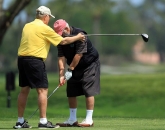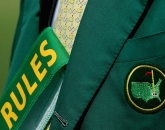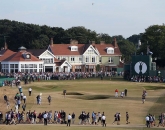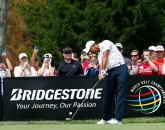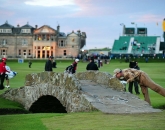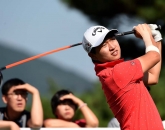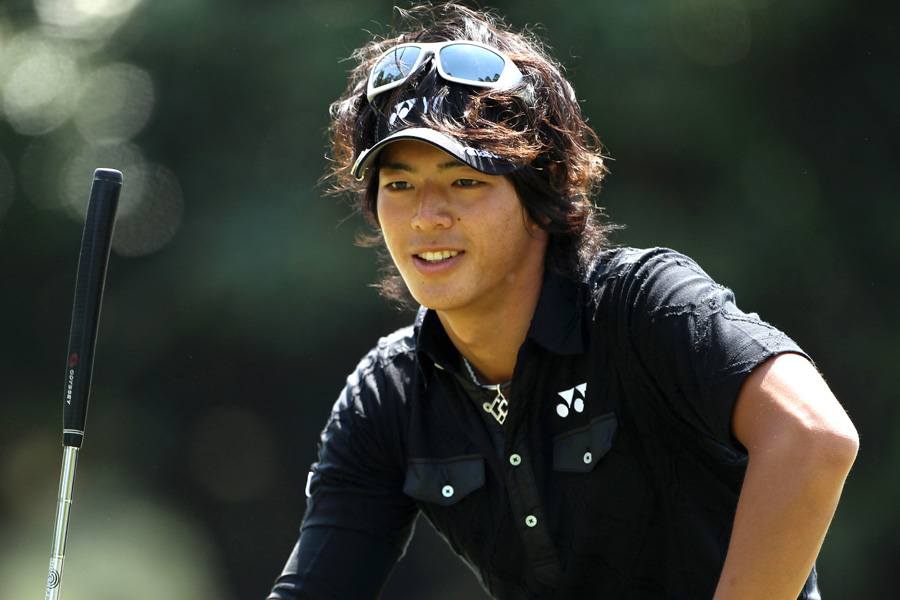 Ryo Ishikawa is the poster child for the modern game. He's young and he's Asian – and at a time when golf is keen to embrace both youth and the potential tens of millions of players in the Far East, it is no exaggeration to suggest that this 19-year-old has the requisite star quality to transcend the sport.
Ryo Ishikawa is the poster child for the modern game. He's young and he's Asian – and at a time when golf is keen to embrace both youth and the potential tens of millions of players in the Far East, it is no exaggeration to suggest that this 19-year-old has the requisite star quality to transcend the sport.
Born in the Tokyo suburb of Saitama, Ishikawa, like seemingly all of golf's current leading lights, picked up his first club early. Introduced to the game at the age of six in 1997 by his banker father Katsumi (the same year Tiger Woods donned his first Green Jacket), Ishikawa quickly gained success by winning the national junior high school championship in his early teens. Already considered something of a prodigy in local golfing circles, the waif-like Ishikawa (he then stood at barely five-foot-six in his spikes and weighed 130lb) hit the big time at the age of 15 when, on a sponsors' exemption, he played in his first professional event while still an amateur.
Inviting up-and-coming amateur talents to tee it up alongside the pros is nothing new of course – tournament organizers routinely do this as a way of generating attention; the hope being that the bright, young player in question might make the cut and thereby earn the championship a few more column inches than usual. But the organizers of the 2007 Munsingwear Open KSB Cup got more than they bargained for when the fresh-faced Ishikawa pitched up for their tournament. Opening with rounds of 72 and 69 to easily make it through to the weekend action, Ishikawa grew in confidence as each day passed before firing a brilliant 66 in the final round to take the title by a single stroke. In doing so he became the youngest winner of a Japan Tour event in history. The publicity Ishikawa's victory garnered went through the roof. "New Hero!" screamed the front page of popular daily sports newspaper Nikkan Sports, while the Sankei Sports went even further, calling Ishikawa "More of a genius than Woods!" In terms of sponsor invitations, this was arguably the best – or most fortuitous – of all time.
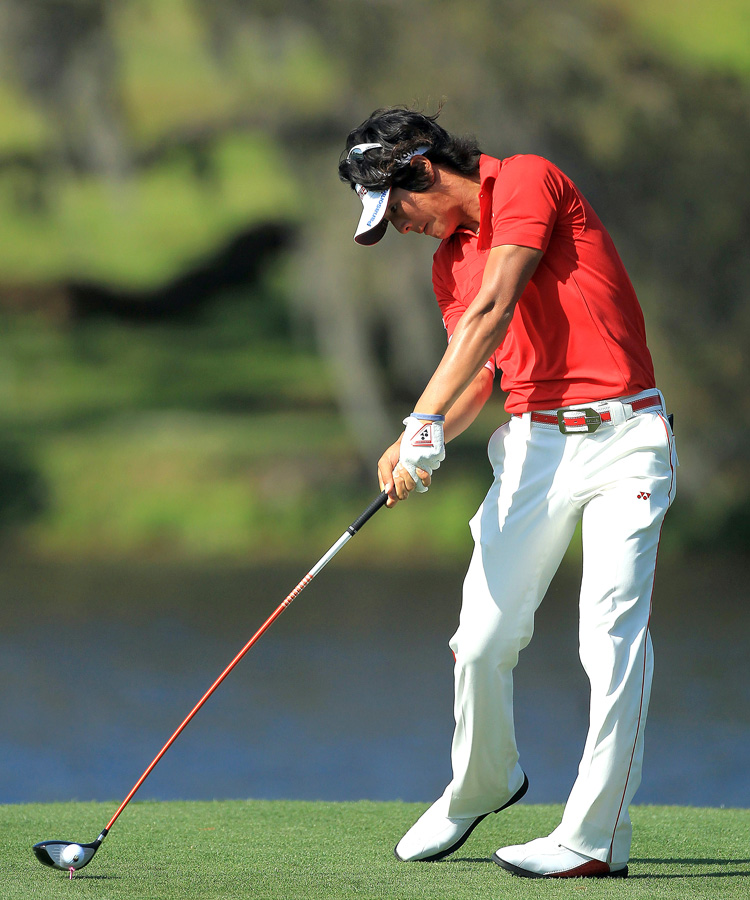 While Japan has long been a proud golfing nation, the county has been without a true hero since the days of the stylish Isao Aoki, who won tournaments – and supporters – around the world throughout the 1970s and 80s . There was also Masashi "Jumbo" Ozaki, the most successful player on the domestic professional circuit since the tour's formation, but while he remained a mainstay of the world's top 10 rankings at his peak, Ozaki's performances outside Japan were spotty at best. To Japanese fans and media alike, Ishikawa represents the next great hope and the teenage amateur became an overnight sensation following his breakthrough win. He was immediately dubbed "Hanikami Ōji" – the "Bashful Prince" – on account of his modesty and unmatched talent. Japanese conglomerates – the likes of Panasonic and Toyota – who were eager to throw sponsorship yen his way, were quick to enquire when he was going to join the professional ranks.
While Japan has long been a proud golfing nation, the county has been without a true hero since the days of the stylish Isao Aoki, who won tournaments – and supporters – around the world throughout the 1970s and 80s . There was also Masashi "Jumbo" Ozaki, the most successful player on the domestic professional circuit since the tour's formation, but while he remained a mainstay of the world's top 10 rankings at his peak, Ozaki's performances outside Japan were spotty at best. To Japanese fans and media alike, Ishikawa represents the next great hope and the teenage amateur became an overnight sensation following his breakthrough win. He was immediately dubbed "Hanikami Ōji" – the "Bashful Prince" – on account of his modesty and unmatched talent. Japanese conglomerates – the likes of Panasonic and Toyota – who were eager to throw sponsorship yen his way, were quick to enquire when he was going to join the professional ranks.
This happened the following year when Ishikawa had turned 16 – and he soon won again – at the mynavi ABC Championship, where he put in another nerveless display to best his more experienced counterparts. The victory helped catapult Ishikawa into the top 100 of the Official World Golf Rankings, but it was the following year – 2009 – when he started to make a name for himself on the international stage.
Despite his diminutive build, Ishikawa's wonderfully athletic swing gives him an average driving distance of 300 yards, and he used this in combination with a red-hot putter to conquer all before him – at least on home turf. The skiing fanatic claimed four titles on the Japan Tour to win the money list that year and also earn the attention of Greg Norman, who selected Ishikawa for the International team to face the United States at the President's Cup. 2009 also marked his Open Championship debut. Playing the first two rounds with Tiger Woods, the Bashful Prince outscored the then world number one on Thursday with a sublime 68 before slipping back in the second round to narrowly miss the cut.
Last year at St Andrews, Ishikawa, buoyed by a jaw-dropping final-round 58 that helped him win The Crowns tournament a few weeks previously, again started brightly with a four-under-par opening round over the hallowed Old Course. Although he suffered when the winds got up on the second day, his eventual tie for 27th, 14 shots behind eventual champion Louis Oosthuizen, proved that he's adapting well to the intricacies of links golf. And although he has yet to win in 2011, his game is in fine fettle as he heads to Royal St George's: a tie for 20th at the Masters in April gave him his best finish in a major. That 58 in Japan, incidentally, was the lowest round ever carded on a major golf tour.
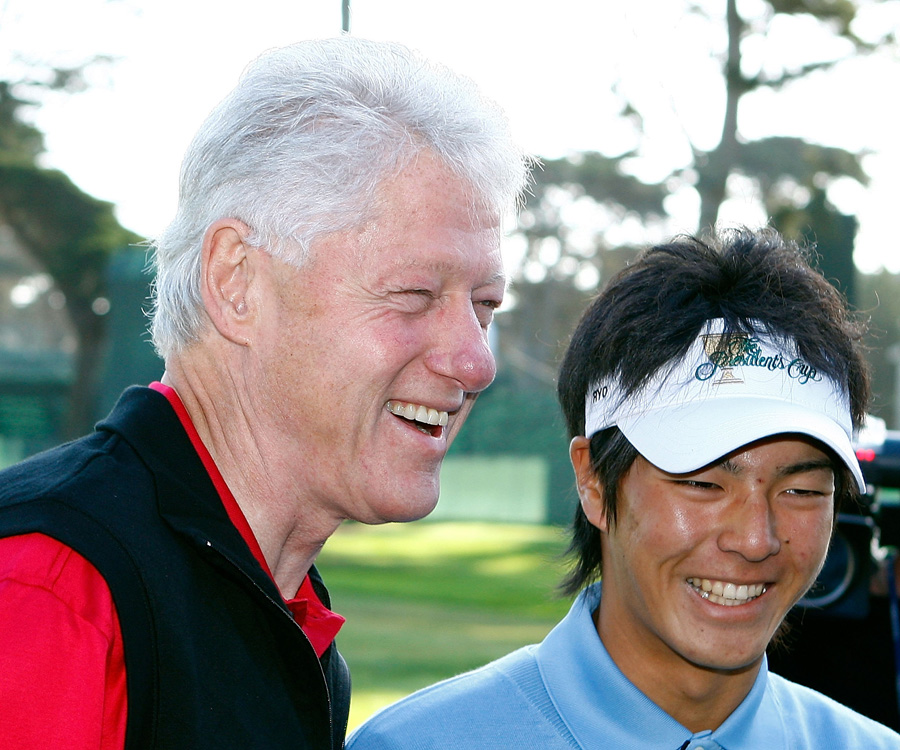 Whether Ishikawa, who is followed to every tournament he enters by legions of Japanese journalists and photographers, can follow in the footsteps of YE Yang and become an Asian major winner remains to be seen of course. But this personable young man, not yet in his 20s, is already showing the character of a true champion, as witnessed by his generosity in donating all of his tournament earnings this year to the victims of the earthquake and tsunami that wreaked havoc on his homeland.
Whether Ishikawa, who is followed to every tournament he enters by legions of Japanese journalists and photographers, can follow in the footsteps of YE Yang and become an Asian major winner remains to be seen of course. But this personable young man, not yet in his 20s, is already showing the character of a true champion, as witnessed by his generosity in donating all of his tournament earnings this year to the victims of the earthquake and tsunami that wreaked havoc on his homeland.
"I feel thrilled," said the 53rd-ranked Ishikawa, who also pledged to donate cash for every birdie he makes. "My goal is 200 million yen [HK$19.4 million]. I have enough to spend for my golf. I still have savings. I believe this is the most positive way for me to spend money."


